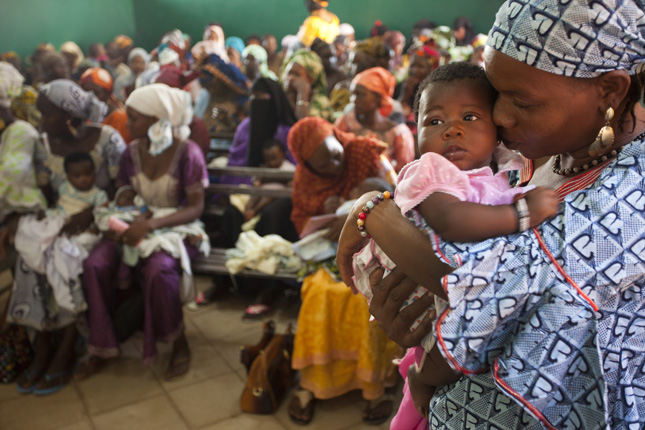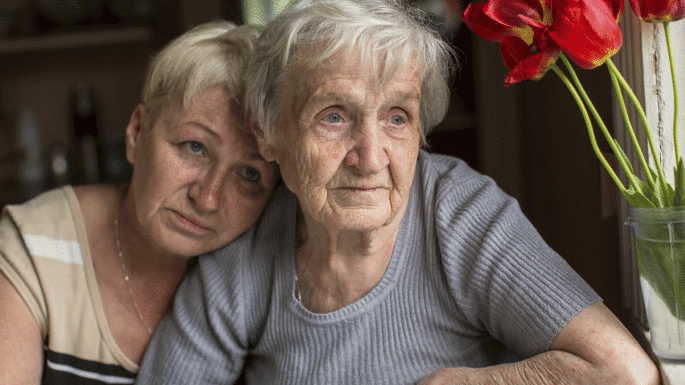-
Dr. Belen Garijo: “I Believe We Need To Do Better” For Caregivers Across The World
› “As many as 865 million of our mothers, daughters, [and] sisters across the globe are not reaching their full potential to contribute to their national economies,” said Dr. Belén Garijo, CEO for healthcare and executive board member of Merck KGaA, Darmstadt, Germany, at a recent Wilson Center event. The act of caregiving, and the physical and mental health impacts that accompany it, often disproportionately rest on the shoulders of society’s women.
“As many as 865 million of our mothers, daughters, [and] sisters across the globe are not reaching their full potential to contribute to their national economies,” said Dr. Belén Garijo, CEO for healthcare and executive board member of Merck KGaA, Darmstadt, Germany, at a recent Wilson Center event. The act of caregiving, and the physical and mental health impacts that accompany it, often disproportionately rest on the shoulders of society’s women. -
The Costs of Caring: Balancing the Burden of Caregiving for Women and Men
›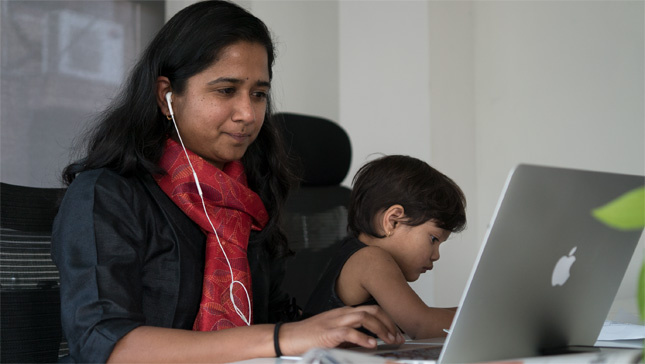
“The act of caregiving has unique impacts on women, in terms of economic, emotional, and physical well-being,” said Dr. Belén Garijo, the CEO for healthcare and executive board member of Merck KGaA, Darmstadt, Germany, at a recent Wilson Center event.
-
Maternal Health Experts: Strategic Partnerships and Data Key to Strengthening Health Systems
› “We need to think differently about how we invest in our country programs, and what outcomes we are interested in,” said Dr. Koki Agarwal, director of the U.S. Agency for International Development (USAID)’s flagship Maternal and Child Survival Program (MCSP) and a Vice President with Jhpeigo, at a recent Wilson Center event.
“We need to think differently about how we invest in our country programs, and what outcomes we are interested in,” said Dr. Koki Agarwal, director of the U.S. Agency for International Development (USAID)’s flagship Maternal and Child Survival Program (MCSP) and a Vice President with Jhpeigo, at a recent Wilson Center event. -
Strengthening Health Systems Improves Healthcare for Women, Children, and Youth
›
“We cannot achieve our goals of ending maternal and child deaths without addressing critical health system barriers around the world,” said Grace Chee of the U.S. Agency for International Development (USAID)’s flagship Maternal and Child Survival Program at a recent Wilson Center event. To improve the lives of mothers and children, health workers must address the underlying causes of poor health outcomes, including systemic weaknesses in health care governance, financing, and human resources.
-
2.6 Million Babies Are Stillborn Every Year
› Every day, 7,100 babies are stillborn. A tragic, complicated problem, stillbirth—which the WHO defines as a baby born with no signs of life at or after 28 weeks’ gestation—remains difficult to control and to assess. Some hospitals hide data on stillbirth, due to the shame and stigma associated with it. However, as White Ribbon Alliance CEO Betsy McCallon said at a recent Wilson Center event marking the 30th anniversary of the Safe Motherhood Initiative, stillbirth “had been hidden and neglected, but that is changing.”
Every day, 7,100 babies are stillborn. A tragic, complicated problem, stillbirth—which the WHO defines as a baby born with no signs of life at or after 28 weeks’ gestation—remains difficult to control and to assess. Some hospitals hide data on stillbirth, due to the shame and stigma associated with it. However, as White Ribbon Alliance CEO Betsy McCallon said at a recent Wilson Center event marking the 30th anniversary of the Safe Motherhood Initiative, stillbirth “had been hidden and neglected, but that is changing.” -
“It Can Be Done”: Address Malata’s Dream for Safe Motherhood in Malawi
› “Women still die…and they die preventable deaths,” said Address Malata, vice chancellor of the Malawi University of Science and Technology, at a recent Wilson Center event honoring the 30th anniversary of the Safe Motherhood Initiative. Malata—a midwife and the former vice president of the International Confederation of Midwives—told the heart-wrenching story of a pregnant woman who, like so many others, died waiting for transportation.
“Women still die…and they die preventable deaths,” said Address Malata, vice chancellor of the Malawi University of Science and Technology, at a recent Wilson Center event honoring the 30th anniversary of the Safe Motherhood Initiative. Malata—a midwife and the former vice president of the International Confederation of Midwives—told the heart-wrenching story of a pregnant woman who, like so many others, died waiting for transportation. -
The 30th Anniversary of the Safe Motherhood Initiative
›
Since 1987, the number of women dying during pregnancy and delivery has dropped by 43 percent, saving hundreds of thousands of women’s lives—and changing the lives of their families—around the world. “Our achievement in making maternal mortality an injustice that needs to be recognized by health ministers, by heads of state, by heads of agencies, has been, I think, the single greatest achievement of the Safe Motherhood Initiative” since it began 30 years ago, said Ann Starrs, President and CEO of Guttmacher Institute, at a Wilson Center event marking the anniversary of this important effort.
-
The Burden of Care: The Impact of Progressive Policies
›
The burden of care—the time, energy, and costs of caring for other people—is growing, and women shoulder the heaviest load. This burden can have negative consequences for businesses, too, as it affects the health and productivity of workers, as well as economic growth. At a recent Wilson Center Ground Truth Briefing, four leading experts discussed the ways in which progressive policies could help balance the burden of care to increase economic productivity and benefit both employers and employees.
Showing posts from category maternal health.


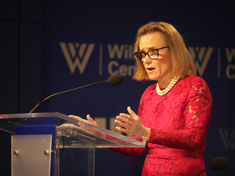 “As many as
“As many as 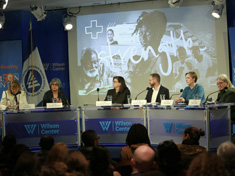 “We need to think differently about how we invest in our country programs, and what outcomes we are interested in,” said Dr. Koki Agarwal, director of the U.S. Agency for International Development (USAID)’s flagship
“We need to think differently about how we invest in our country programs, and what outcomes we are interested in,” said Dr. Koki Agarwal, director of the U.S. Agency for International Development (USAID)’s flagship 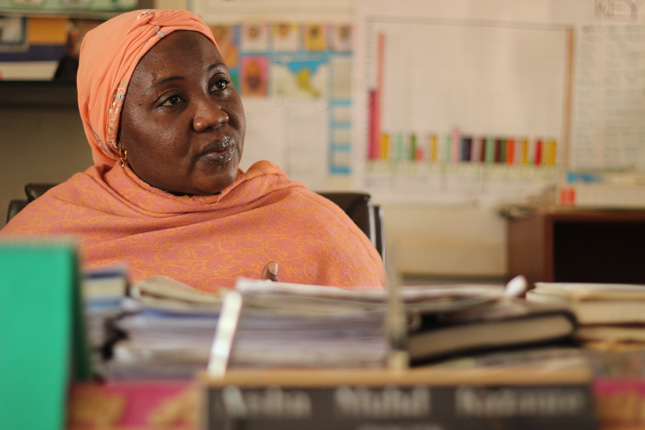
 Every day, 7,100 babies are stillborn. A tragic, complicated problem,
Every day, 7,100 babies are stillborn. A tragic, complicated problem,  “Women still die…and they die preventable deaths,” said Address Malata,
“Women still die…and they die preventable deaths,” said Address Malata, 